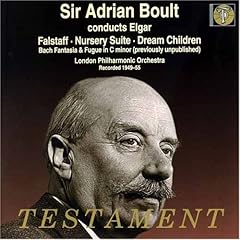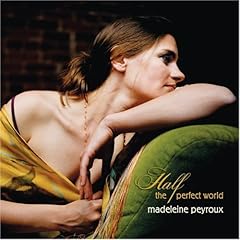HKPO/Steven Hough/Mark Elder
Brahms/Elgar/Shostakovich
CCCH
After the pedestrian performance of the Alpine Symphony by Edo de Waart, I decided to skip the Mahler 9th and put my hopes in this concert, and they were more than met by the sensational second half.
As documented in wikipedia, conductor Mark Elder has always been an interesting personality. Highly respected, his works with the ENO and the Halle have been universally acknowledged. In the second half, he gave short introductions before the two works. An elegant man and a very good speaker with a "Masterpiece Theater" type of voice, he won the audience's rapport. Music to my ears! That's a lot for HKPO presenters to learn!
 Opening the second half was Elgar's transcription of Bach's fantasia and Fugue in C minor, BWV 537, scored for a large orchestra with full battery of percussion! Make sure you read the link as the genesis of this piece is interesting! This piece is rare even on records. I first heard it on a glorious but out-of-print EMI (Studio series) CD by LPO/Boult (I think The Sanguine Fan is also on it), at the home of a HK music/hifi fan! I loved the piece so much that when I recently accidentally came across a UK pressing of the LP, I grabbed it even at at a premium.
Opening the second half was Elgar's transcription of Bach's fantasia and Fugue in C minor, BWV 537, scored for a large orchestra with full battery of percussion! Make sure you read the link as the genesis of this piece is interesting! This piece is rare even on records. I first heard it on a glorious but out-of-print EMI (Studio series) CD by LPO/Boult (I think The Sanguine Fan is also on it), at the home of a HK music/hifi fan! I loved the piece so much that when I recently accidentally came across a UK pressing of the LP, I grabbed it even at at a premium.The performance of the Elgar was excellent. An unforced Elgarian flavor did come through, particularly in the strings, no wonder as Elder is a noted Elgar conductor. He brought out all the strands of this piece tastefully and meticulously. The climax was well built and sonorous, eminently satisfying even if it was not as full blown as in Boult's recording.
The little spiel Elder gave on Shostakovich's Sixth Symphony was fascinating. While he told us to arrive at our own conclusions about the nature of the piece, he could not resist taking a side swipe at the programme annotator Marc Rochester, saying he disagreed completely with what the program note said about the last 2 movements of the symphony. Those who remember my writing shall remember that many times previously I took exception to what this annotator (who apparently writes for the Gramophone) said. Naturally I was very pleased! :-)
Even the excellent Elgar did not prepare me for the eletricfying reading of Shosty's 6th. The long first movement is rather elusive and not easy to bring off even on record. Elder showed his mettle in dissecting every strand, bringing out a myriad of details, yet (unlike EdW) maintaining suspense and a sense of momentum in music that can sound dis-embodied in lesser hands. Economical and gentle in gesture, without any histrionics Elder brought out everything, be it a whiff of whimsy, a moment of tenderness or blinding strength. His relaxed way must have transmitted to the orchestra, which played with beauty and full sonority; yet his concentration assured relentless progression and building of truly impressive and clean climaxes. This is a valedictory reading to put beside HKPO's performance of the 8th with Jaap Van Zweden.
The audience did their best in clapping. A friend of ours gave the only standing ovation and I yelled a bravo! I just wish more people had attended (no more than 50%). Some friends from the UK loved the performance but also lamented the attendance. The HKPO should spend more effort promoting other musicians rather than spending tons of taxpayer money in advertising incessantly (and vulgarly) about the "mastery" of no one but EdW. Well, that's the power of advertising!
I have left the lesser half of the concert for last. For the first half Steven Hough gave a thoroughly boring and ineffectual performance of the Brahms' First Piano Concerto. While trying to appear effortless and ephemeral in his playing, he came across as effete and effeminate, in this of all pieces! And that's a sin. His technique left much to be desired, gravely deficient in left hand power and metronimic when pressed. At times, the soft passages had some poetry which somehow quickly turned into affectation. No, not a pianist for me. Elder was a good accompanist but even he could do little to enliven the deadly proceedings.
Nonetheless, all's well that ends well, and gratitude to Mark Elder that it all ended very well indeed. You can draw your own lesson. For me, I go to hear an inspiring conductor galvanizing his forces, and don't want to make excuse for anyone. It's fashionable now to mention "letter of the score" and "orchestral building" to defend against interpretive blandness, but I'd think those qualities are not as important, so long as the music speaks to you? 24 microphones for recording an orchestra to me was a distraction and I wondered whether it was necessary.
Here's a limited discography of Elder based on 4 CDs that I heard.











